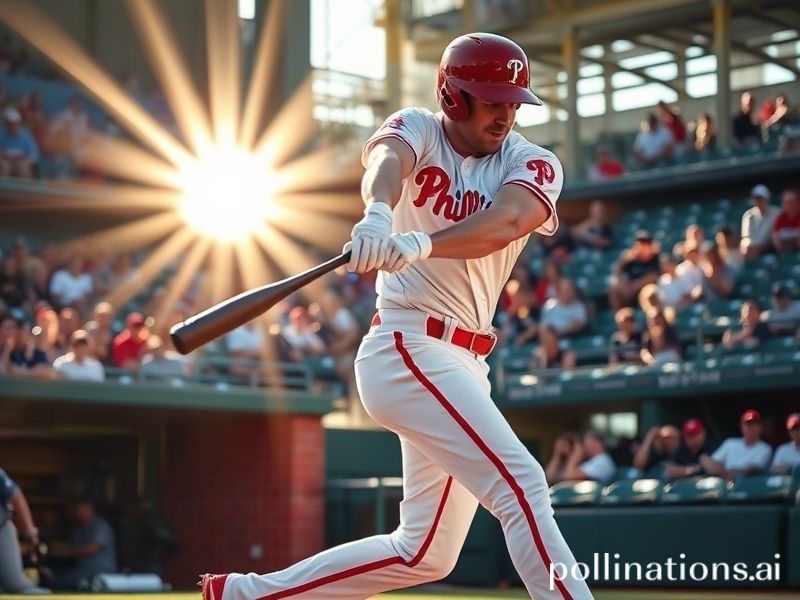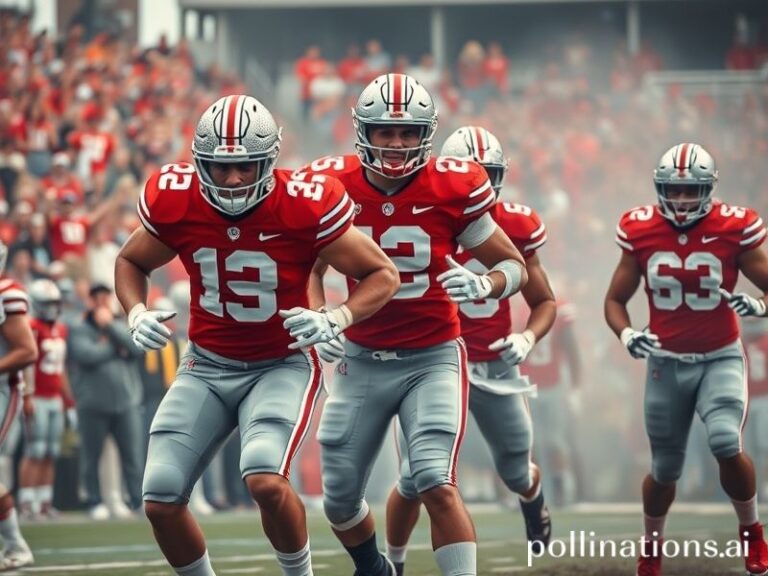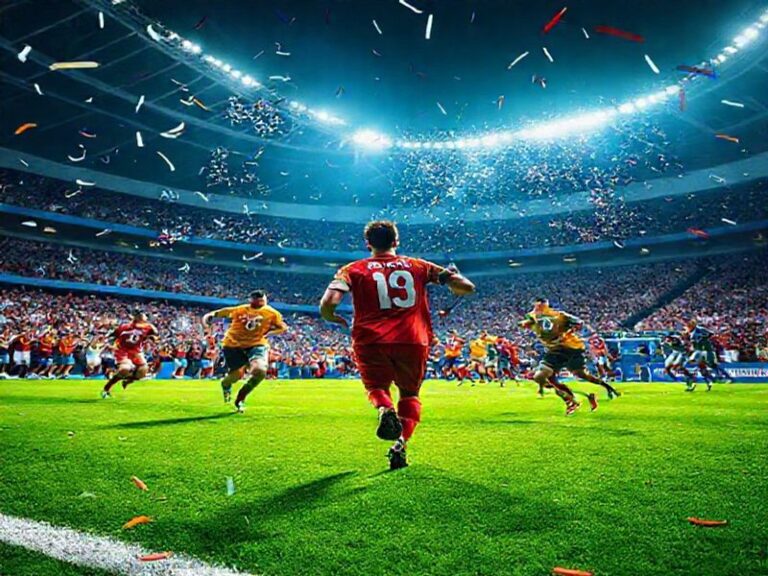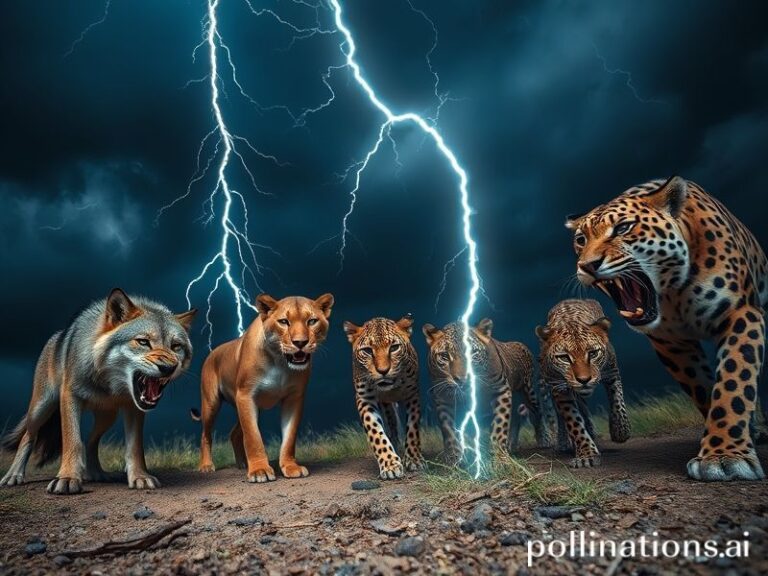Phillies vs Marlins: How a Meaningless Baseball Game Explains Everything Wrong—and Right—with Planet Earth
The Phillies and Marlins, two clubs whose combined payroll wouldn’t cover Mbappé’s weekly dry-cleaning bill, squared off again last night in South Philadelphia. From an international vantage point—say, a cramped sports bar in Naples where the espresso is stronger than the Wi-Fi—this NL East tilt carries all the geopolitical weight of a UN resolution on decorative napkin folding. Yet here we are, treating it like the Cuban Missile Crisis because, in 2024, even the trivial must cosplay as momentous.
Let’s zoom out. While half the planet debates which hemisphere gets to fry first, the Phillies and Marlins perform their ritual dance of American pastoral nostalgia: grass, chalk, and a ball stitched in a Costa Rican sweatshop. The game is broadcast simultaneously on three continents, which means a bleary-eyed accountant in Jakarta can watch Kyle Schwarber whiff on a 95-mph fastball at 7:00 a.m. local time, right before his 12-hour shift tabulating derivatives that will eventually implode the global economy. Baseball: proudly exporting existential dread since 1869.
On the surface, the matchup is a study in asymmetrical warfare. The Phillies spend like a hedge fund in midlife crisis; the Marlins spend like a hedge fund in witness protection. Philadelphia’s roster is a museum of mercenaries—Bryce Harper’s bat alone costs more than the GDP of Tuvalu—while Miami’s lineup resembles an internship program with occasional dental. One club is trying to buy a parade; the other is trying to sell prospects for Bitcoin. Somewhere in Geneva, a trade attaché sighs and files this under “soft-power imbalance.”
Yet the Marlins persist, powered by voodoo, spite, and whatever Pablo López’s arm is made of these days (titanium? resentment?). They win just often enough to remind the Phillies that money can’t buy happiness, only a slightly higher probability of October heartbreak. It’s a lesson the global elite never learns—see: the European Central Bank, or your friend who keeps buying NFTs. The universe, like a well-placed curveball, enjoys humbling hubris.
The crowd at Citizens Bank Park performed the usual pageantry: a sea of red polyester, punctuated by the occasional Marlins fan who’d wandered north for cheaper opioids. Between innings, the Jumbotron flashed trivia questions comparing cheesesteak consumption to Iceland’s annual fish catch, a juxtaposition that somehow felt both xenophobic and statistically sound. Meanwhile, in the upper deck, a group of German exchange students tried to explain the infield fly rule using Kantian ethics; the attempt ended in a bratwurst-related incident that will be studied in diplomacy seminars for years.
Sportsbooks from Macau to Malta had the Phillies at –220, because gamblers, like hedge funds, trust brand names even when logic suggests otherwise. The line moved faster than a Venezuelan refugee’s TikTok career, illustrating how a meaningless regular-season game can still move capital across borders faster than you can say “offshore shell company.” Somewhere, a hedge fund algorithm just shorted the Dominican peso because Ranger Suárez walked the leadoff man. If that feels insane, congratulations—you’ve grasped late capitalism.
The final score—Phillies 4, Marlins 2—will be forgotten by Friday, but its ripples will spread. A loss drops Miami further into the wildcard quicksand, nudging their front office closer to trading their entire outfield for a pitching prospect who throws 102 mph and tweets QAnon memes. Philadelphia celebrates like they’ve cured gout, blissfully unaware that the Braves already clinched the division on the back of a 20-year-old who grew up idolizing Ronald Acuña and, presumably, tax shelters.
And so the carousel spins. While glaciers calve and supply chains unravel, two baseball teams keep playing a children’s game with adult consequences. The planet may be on fire, but at least we have box scores to distract us—proof that humanity’s greatest talent isn’t innovation, but denial wrapped in mustard-stained polyester. Play ball, indeed.







